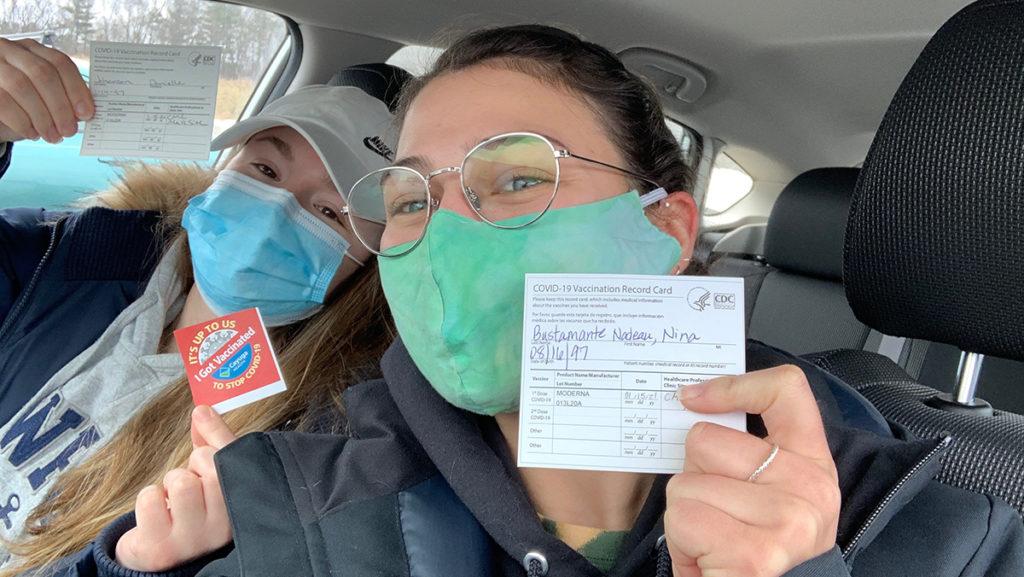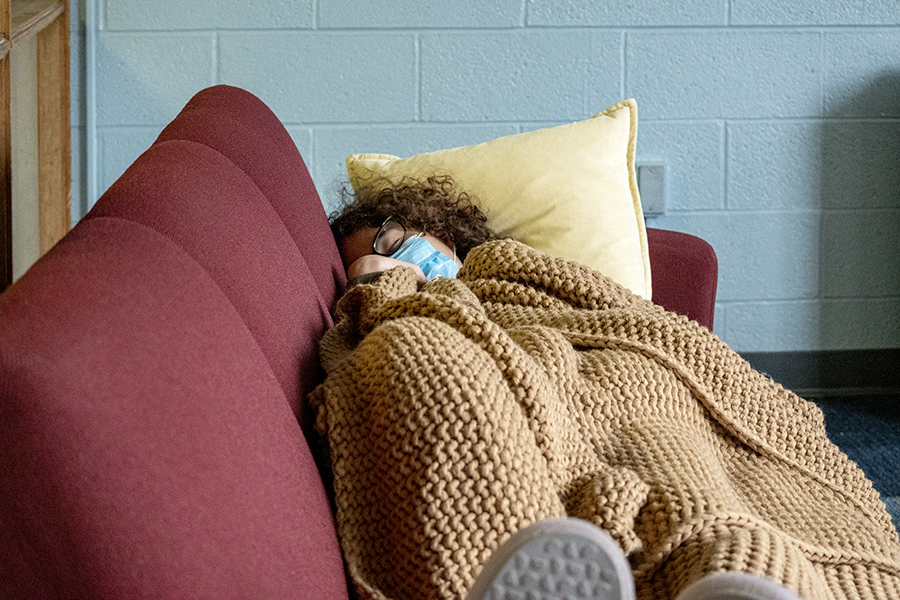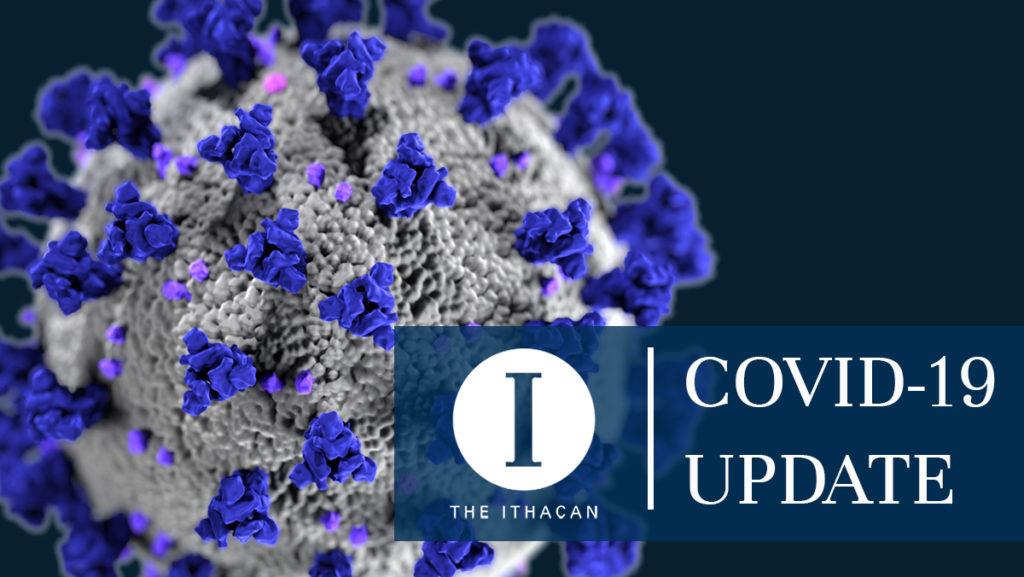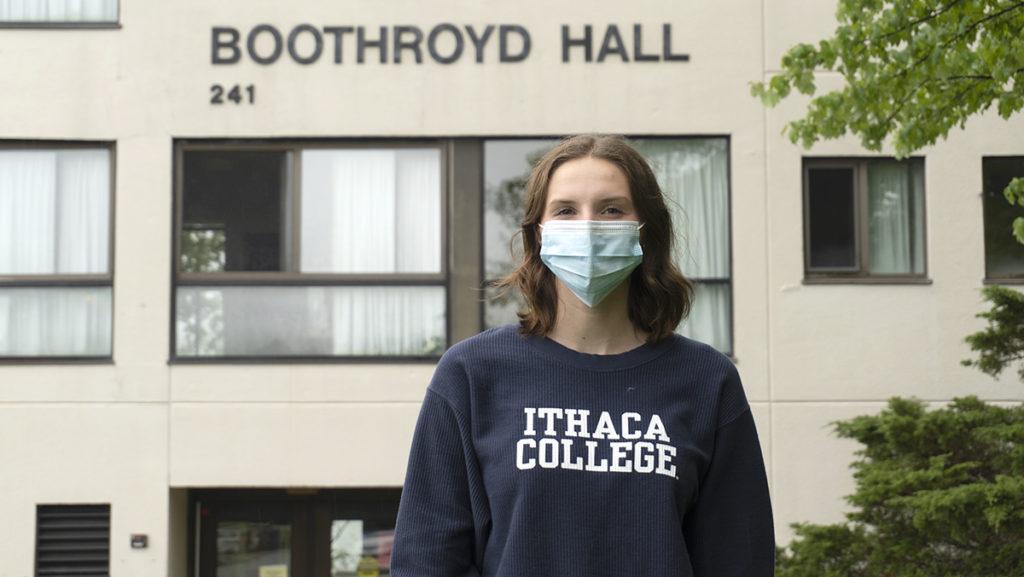Some Ithaca College community members who are eligible to receive the COVID-19 vaccine are getting vaccinated.
New York state is in Phase 1a and starting Phase 1b of COVID-19 vaccine distribution. These phases include populations like healthcare workers, first responders, teachers, people 65 years or older and some essential workers. People with certain underlying conditions or comorbidities became eligible to receive the vaccine Feb. 15. College faculty who are teaching in-person classes are among the eligible populations.
Tompkins County has struggled with a short supply of vaccines. New York state distributes the vaccines and receives its supply from the federal government. Doses are distributed to counties each week, but the number of doses varies. County health departments make a request to the state each week for the number of doses needed, but are not informed ahead of time of how many doses the county will receive.
As of Feb. 17, 9,293 people have received the first dose of the vaccine and 6,710 people have received the second dose in Tompkins County, according to the Tompkins County Health Department.
For the week of Feb. 15, Tompkins County was allocated 800 doses of the vaccine, with 200 of these doses designated for people aged 65 years and older with underlying medical conditions. The remaining doses are for grocery and P–12 school workers eligible in Phase 1b. However, the department announced Feb. 17 that the vaccines would not be distributed due to weather and transportation delays. Those who were registered to receive the vaccine this week at the Cayuga Health vaccination site will have their appointments carried over for a future Cayuga Health clinic, once vaccines are available.
The health department announced that it will hold a pop-up vaccination clinic at Beverly J. Martin Elementary School on Feb. 19, where 200 first doses of the vaccine will be administered. This location will still be administering vaccines, despite the delays.
“We are excited to host the County’s first pop-up clinic in such an historical and central location,” Frank Kruppa, Tompkins County public health director, said. “This clinic will serve individuals who may have barriers to accessing the vaccination site at the mall.”
Marella Feltrin-Morris, associate professor in the Department of Modern Languages and Literatures, said she did not have to wait long to get her first dose of the vaccine and was able to get an appointment in Broome County, where she lives.
“I was actually very fortunate because I live in the Binghamton area, so there was a place very close to me,” Feltrin-Morris said. “I didn’t have to travel at all. It took me 10 minutes at the most to drive over to Johnson City.”
Feltrin-Morris said she was able to get an appointment on a Saturday so she did not have to miss any work, and her appointment for her second dose of the vaccine will also be on a Saturday.
The Center for Disease Control and Prevention (CDC) has authorized Pfizer-BioNTech vaccine and the Moderna vaccine for emergency use. Both of these vaccines require two doses. For the Pfizer-BioNTech vaccine, the doses must be administered 21 days apart. The doses of the Moderna vaccine must be administered 28 days apart.
Feltrin-Morris said she expected the vaccination process to be more difficult.
“For me, it was actually much easier than I thought,” she said. “So ultimately, we had a very good experience. It was not difficult.”
Paula Turkon, assistant professor in the Department of Environmental Studies and Science, said she had to travel approximately one hour to Syracuse, New York in Onondaga County to receive her first dose of the vaccine and had to cancel one of her classes. She said she was able to have students in that class attend another section of the class, so it did not greatly impact the course schedule.
Turkon said that although she had to go to Syracuse for her vaccination appointment, the appointment itself was an efficient process.
“A bunch of other people that I know have gotten the vaccine and the process is getting more and more streamlined, and it’s taking less and less time,” said Turkon.
Some students have also been able to get the vaccine. Sixth-year physical therapy student Nina Bustamante received her second dose of the vaccine Feb. 12 at the Shops at Ithaca Mall vaccination site. She was approved to be vaccinated through the Department of Physical Therapy because she works with patients in person.
“The vaccination process was very accessible,” Bustamante said. “I am a physical therapy student and will be working one-on-one with patients in about a month, so having both doses in my system to not only protect myself but to protect all of my patients is very reassuring, and I am really lucky that the PT department was able to get us students approved for vaccinations.”
Bustamante said she did not have to miss any classes or work to get vaccinated. She said she had no severe reactions to the vaccine, but she did experience body aches and chills following the second dose of the vaccine. Bustamante said because of the timing of her vaccination, these symptoms did not interfere with her work.
“I was able to take the rest of that Friday to relax and rest after each dose, so there was no major effect on work or school,” she said.
According to the CDC, common side effects of the vaccines include pain, redness and swelling at the injection site and chills, lethargy and headaches.
Patricia Humsinger, lecturer in the Department of Art, said she was able to get vaccinated at the Shops at Ithaca Mall site, but had to miss work because of the timing of her second dose appointment and because of the side effects she experienced. Humsinger said she experienced swelling at the injection site and lethargy.
“I don’t think ‘accessible’ is even considered,” Humsinger said via email. “We all want the vaccination and will sign up for it at any time as long as we can even get it! It’s like a lottery. If you are lucky enough to get the vaccination, you’ll compromise whatever it is you must do so that you can get the shot.”











